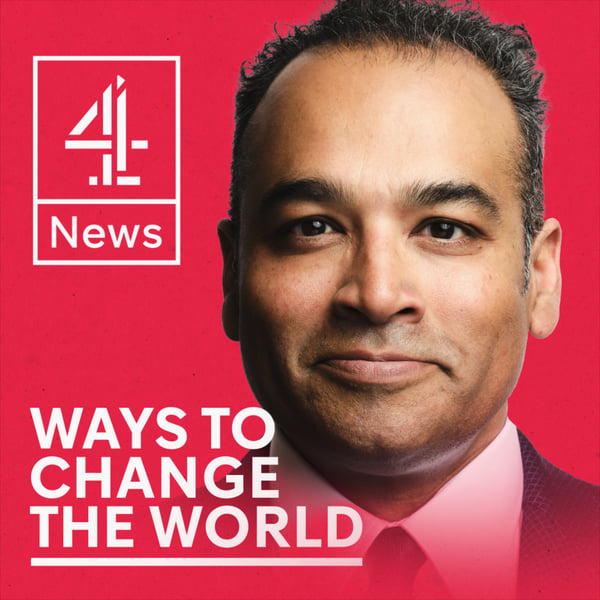‘Antidepressants are like alcohol or cannabis’ | Joanna Moncrieff
Ways to Change the World with Krishnan Guru-Murthy
Channel 4 News
4.6 • 1.1K Ratings
🗓️ 17 April 2025
⏱️ 32 minutes
🧾️ Download transcript
Summary
Joanna Moncrieff is a British psychiatrist, author and researcher who is a prominent and controversial voice in the research of depression.
Her 2002 study ‘The Serotonin Theory of Depression: A Systematic Umbrella Review of the Evidence’ concluded that there was no link between serotonin and depression, debunking the mainstream medical belief in antidepressants.
Moncrieff, whose research has drawn criticism from ‘Big pharma’ and support from fringe figures on the right, speaks to Krishnan Guru-Murthy in the latest episode of Ways to Change the World.
Produced by Silvia Maresca, Ka Yee Mak and Tom Gordon-Martin.
Transcript
Click on a timestamp to play from that location
| 0:00.0 | Hello and welcome to Ways to Change the World. I'm Christian Guru Murphy and this is the podcast |
| 0:04.0 | in which we talk to extraordinary people about the big ideas in their lives and the events that |
| 0:08.7 | have helped shape them. My guest this week is Joanna Moncrief. Now Joanna is a psychiatrist and is |
| 0:13.9 | perhaps the leading skeptical voice in the use of antidepressants to treat depression. She has written |
| 0:20.4 | widely and she's appeared on a lot of media |
| 0:23.9 | and she's a controversial figure and her latest book is called Chemically Imbalanced, |
| 0:28.5 | The Making and Unmaking of the Serotonin myth. |
| 0:34.3 | Joanna, how would you change the world? I would radically demedicalise our understanding and treatment of mental health problems. |
| 0:42.2 | I think that understanding things like depression, anxiety, ADHD, etc. |
| 0:46.8 | As if they are medical problems that arise from the brain is harmful to the individuals themselves. |
| 0:52.3 | I don't think it leads to good outcomes. And I think |
| 0:55.4 | it's harmful to society because it distracts our attention from what is actually making people |
| 1:00.8 | unhappy and stressed in the first place. And so I would relocate help for people with mental |
| 1:08.2 | health problems out of medical facilities, out of GP surgeries, |
| 1:12.6 | probably to somewhere like social services, where they wouldn't be treated for their diagnosis, |
| 1:18.0 | for their label, but actually helped to deal with the problems that had made them unhappy or |
| 1:22.9 | anxious or stressed in the first place. So you're not talking about just replacing drugs with therapy. |
| 1:30.3 | You're talking about tackling the underlying causes of depression? Yes, absolutely. I mean, |
| 1:35.4 | I do think therapy is helpful for some people in some situations, but I don't think it's a panacea. |
| 1:40.4 | And I think the main problem is that we think of people who are depressed as having this thing called depression and we treat the depression rather than helping the individual with their individual difficulties. |
| 1:51.2 | I mean, there are between 8 and 9 million people, we think, being treated for depression with antidepressants in Britain at the moment. |
| 1:58.5 | And it's thought to be a growing diagnosis post-pandemic, big increase in |
... |
Transcript will be available on the free plan in 16 days. Upgrade to see the full transcript now.
Disclaimer: The podcast and artwork embedded on this page are from Channel 4 News, and are the property of its owner and not affiliated with or endorsed by Tapesearch.
Generated transcripts are the property of Channel 4 News and are distributed freely under the Fair Use doctrine. Transcripts generated by Tapesearch are not guaranteed to be accurate.
Copyright © Tapesearch 2025.

